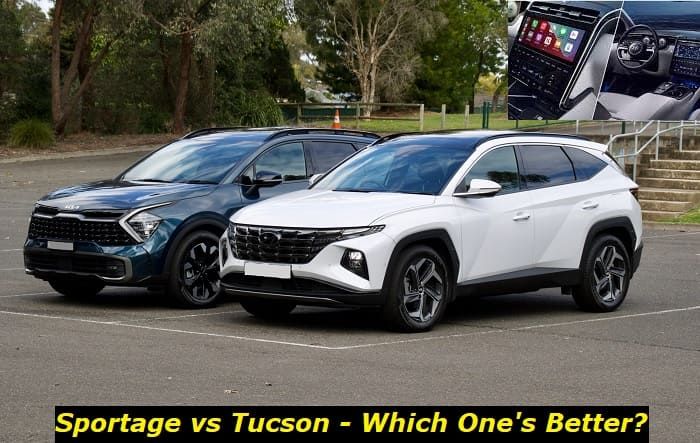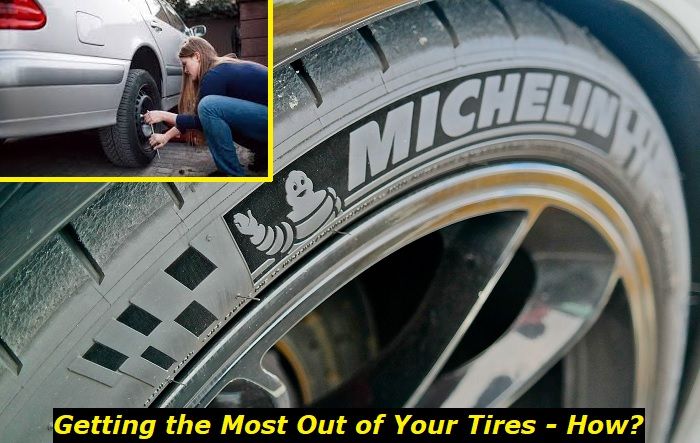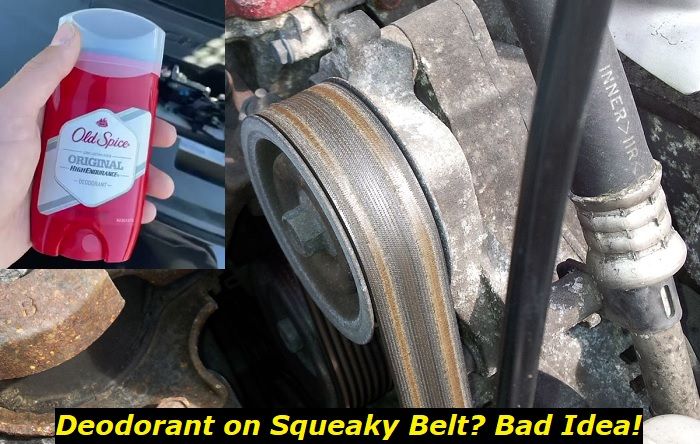When the sixth generation of the Honda CR-V was first presented on the American market, it was quite a big mistake that affected the market. Honda offered its most popular SUV with only one 1.5L turbo engine that didn't seem really good and reliable according to its use in different models with a lot of reports. They lost almost half of their sales compared to 2021.
Later, the 2.0L hybrid LFA1 version came out. In this article, I'm going to tell you more about the 2-liter hybrid powertrain in the new Honda CR-V and what you are going to get with it. Unfortunately, it's not always as good as you may expect it to be. But, in my personal opinion, this engine for Honda is much better than the 1.5L Turbo.
.jpg)
Key features and my opinion about the engine
- Production years:2023-now
- Average lifespan of LFA1:180,000-220,000
- Fuel supply type:port injection
- Power range:212 hp
- Fuel efficiency:excellent
- Engine block material:aluminum
- Engine reliability score:medium
- The most common problems:hybrid battery pack issues, problems with electronics, timing chain stretching.
Key facts about the 2.0L Hybrid engine in the CR-V
So, the new CR-V with the 1.5L Turbo engine is described here and I keep being pretty pessimistic about this engine even after more than a year of experience with it. I saw several cars hanging on the lifters in the Honda dealership with their engines out. This is a bad sign, as you may guess.
Hybrid CR-Vs are still not so popular. And for a reason. The cheaper hybrid trim costs over $33,000 while the optimal trim comes at the price of over $40,000 with no add-ons which you will certainly want to add making the price just unbelievably high. At least, for this mid-range SUV with nothing really premium inside. I believe the name and the authority - this is what sells the CR-V now.
But let's get back to our hybrid engine:
- this is the R-Series Honda engine codenamed LFA1, it's built on the R20 engine that is pretty old and really reliable;
- the gas engine offers 143 horsepower and 129 lb-ft of torque while the combined power is 204 hp - not really bad for this car;
- the same engine has already been used in Japan in the Odyssey Hybrid and also the Stepwgn Hybrid with good reviews from owners;
- the hybrid is mild-hybrid, so you won't be able to charge this car or drive it in all-electric mode to save fuel;
- also, the battery is not that huge, the pack offers 1.06 kWh capacity which is only enough for enhancing the toque a little and using an advanced start-stop feature;
- the fuel economy is claimed to be about 43 MPG in the city and 36 MPG on highways with about 40 MPG of combined consumption.
According to the fuel economy, buying a CR-V hybrid is only wise when you mostly drive in the city. On highways, it will give you more or less the same economy as the non-hybrid 1.5L engine. But we are looking at this 2-liter version not only as the hybrid option but as the better overall option in comparison with the 1.5L one.
The transmission is another interesting advantage. You may know that the 1.5L Turbo comes with the CVT that is not really reliable and can fail pretty early. The 2.0L hybrid CR-V comes with the e-CVT. Although it has a very similar name, the transmission is surprisingly different and, in my opinion, can go at least twice as long as the traditional CVT.
How long will the 2.0L Hybrid live in your CR-V?
Although it's hard to say for sure anything about the longevity of this engine, I can tell you that it should be better than the 1.5L Turbo option. The 2-liter engine is really quite durable and has minor common issues that will most likely attack your car after 100-120 thousand miles only. Overall, the durability of the gas engine is 200,000 miles and more.
The electric motor can live longer than any other part in the car, so we don't take it into account when defining the durability of the powertrain.
The e-CVT doesn't have those units that usually fail in the CVT, so it should be more than durable. I believe it can last about 150,000 miles if the car is driven carefully and doesn't tow heavier loads than it can tow.
The weak link is the battery pack. I don't think it can live as long as the gas engine or e-CVT. The good thing is that this battery pack is only 1.06 kWh, so it won't cost you a fortune to replace. The replacement may be required at about 100,000 miles or a little earlier than that.
Also, if you don't replace the pack, you will just have the 2-liter gas engine with slightly worse gas mileage than it initially had.
What are the expected problems with the CR-V Hybrid?
Well, any engine is going to have some problems. The 2.0L Hybrid engine is based on the old and overall good powerplant of the R-series that was first presented in 2006. It can be considered outdated but with the addition of the electric motor and after several upgrades, this engine certainly got a second youth.
Here are still some issues that you can expect with this powertrain:
1. The battery pack is pretty small
I think you will not be able to take the CR-V to the 100,000-mile mark without changing its hybrid battery. It will get a lot of charge-discharge cycles during the day due to its size. The small battery won't cost a lot (well, it will, but not as much as in other hybrids) but it will not last long.
So, at about 80,000 miles, the efficiency of the hybrid powertrain may significantly drop and you may eventually get worse gas mileage and less power. These are the clear signs that you need to change the battery pack.
2. No hydraulic lifters in the engine
As far as I know, the R-series engines don't have hydraulic lifters and this is the problem. Once every 40-60 thousand miles, you may need to have the valves adjusted. It means you will pay for this procedure and, unfortunately, it's not that cheap.
If you don't adjust the valves, they will start taking the efficiency of the gas engine down. This will result in lower power, harsh work of the engine, and other unpleasant things.
3. The engine is really loud
As this is an old engine that comes from the golden age of Honda technologies, it concentrates on practical sides like durability and quality. But it fails to deliver the proper comfort. It vibrates pretty badly and it is a very loud engine. There are several actuators that open and close with a clunk and this may make you think that something is wrong with the engine.
Also, the noise when warming up and not completely stable idling are just normal things for this engine. This is something you will have to put up with because repairing these issues doesn't make any sense.
4. Emission system issues
Much before the engine drops, it may experience serious problems with the emission system. It's oxygen sensors and catalytic converters depend really much on the quality of gas you use. That's why I only recommend high-quality premium petrol for any modern Honda car. Replacing the catalytic converter set will cost you literally thousands of dollars. Even oxygen sensors are crazily expensive to replace in this engine.
Can you prolong the life of the CR-V Hybrid engine?
The gas engine in this LFA1 hybrid powerplant is pretty demanding in terms of the quality of maintenance and fuel. If you want to drive the hybrid CR-V as long as possible with no serious problems, you should follow these tips:
- regular maintenance should be religiously precise and only with OEM materials and parts;
- this is the chain-driven engine, so at about 100,000 miles, pay attention to the chain and tensioner - you may need to replace the entire chain kit;
- the hybrid battery needs your attention once the car reaches 80,000 miles, especially if you drive mainly in the city;
- avoid driving this car as a crazy racer - any abuse will most likely reduce the lifespan of the gas engine;
- make sure you don't ignore such issues as excessive vibrations, bad sounds, and a drop in performance.
Overall, ignoring minor issues is probably the most obvious way to kill your Honda CR-V Hybrid engine much sooner than you expect. Also, don't tow anything heavier than 1000 pounds. Honda clearly states this is not the right car for towing and you need to consider that when buying it.
Final thoughts
I personally don't think either of the offered engines is good for the CR-V. Overall good and even great car makes it quite hard for you to choose the trim. Both engines have a lot of potential problems and they both cost a lot to repair.
But if I were to choose between these two options, I would go for the 2.0L hybrid. This engine is better, more durable, more economical, and it feels better on the road. Unfortunately, the CR-V doesn't offer any plug-in hybrid version. I believe this would be a best-seller. But anyway, the mild-hybrid 2.0L version doesn't seem as bad as you may have thought initially!
About the authors
The CarAraC research team is composed of seasoned auto mechanics and automotive industry professionals, including individuals with advanced degrees and certifications in their field. Our team members boast prestigious credentials, reflecting their extensive knowledge and skills. These qualifications include: IMI: Institute of the Motor Industry, ASE-Certified Master Automobile Technicians; Coventry University, Graduate of MA in Automotive Journalism; Politecnico di Torino, Italy, MS Automotive Engineering; Ss. Cyril and Methodius University in Skopje, Mechanical University in Skopje; TOC Automotive College; DHA Suffa University, Department of Mechanical Engineering






Add comment